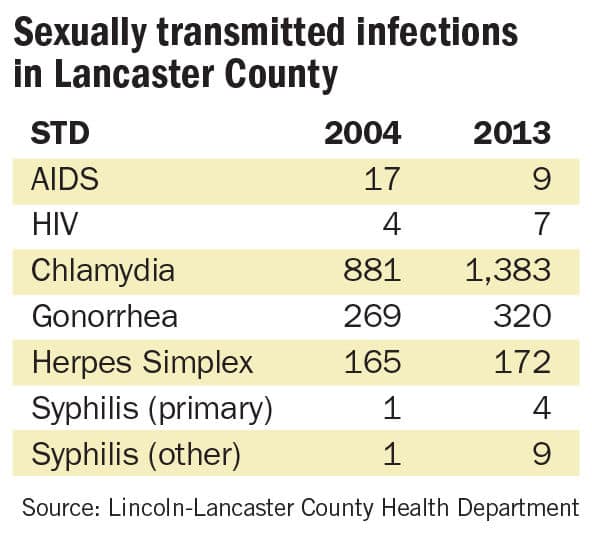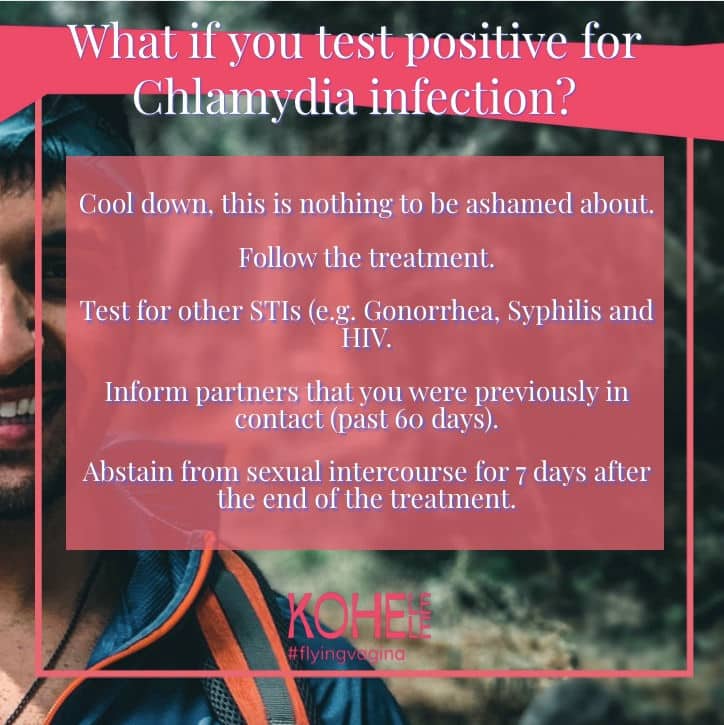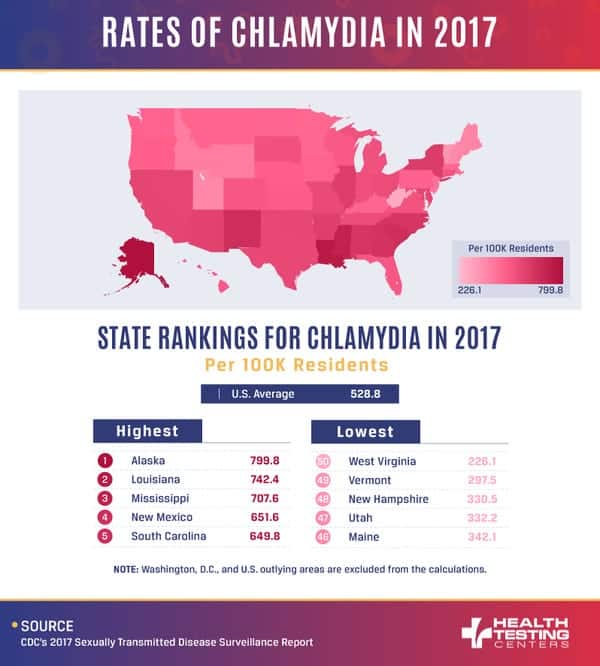How Can You Be Sure Youre Experiencing A New Bout
Chlamydia is treated with antibiotics, usually azithromycin or doxycycline.
In order to make sure chlamydia is cured, you need to take the full course of antibiotics as prescribed by your doctor. You need to take every single dose dont stop taking the antibiotics until there are none left.
If youve taken all your antibiotics but you still have symptoms, contact your doctor or another healthcare professional.
According to the Center for Disease Control , youll need a follow-up test three months after treatment to ensure that the infection is cured.
There are a few reasons why you might contract chlamydia a second time:
- The initial infection wasnt cured because the course of antibiotics wasnt completed as directed.
- A sexual partner transmitted chlamydia to you.
- You used a sex toy that was contaminated with chlamydia.
A 2014 study suggests that chlamydia can live in the gastrointestinal tract and reinfect the genitals, causing chlamydia symptoms to reappear after the genital infection went away.
However, this study only looked at animal models of chlamydia. Research on human participants is needed.
The symptoms of chlamydia typically disappear once you finish your antibiotics. This can vary in time, as some chlamydia antibiotic courses are one dose taken on one day, while others last longer.
What Happens If You Have Chlamydia For Over A Year
The majority of people who have chlamydia aren’t aware of any signs or symptoms, even after several months or years with infection. Nonetheless the impact of untreated chlamydia can be serious for women, causing significant damage to the reproductive organs.
Researchers don’t know exactly how long it takes for such effects to occur or exactly what proportion of women with untreated chlamydia suffer such consequences. It is probably only a minority of women who have these serious complications.
In men, serious consequences are rare. Occasionally, men can experience epididymitis, which is an inflammation of the coiled tube at the back of the testicle that stores and carries sperm.
Treatment for chlamydia is simple, requiring a short course of antibiotics. However if the infection is left untreated in women it can spread into the uterus or fallopian tubes and cause pelvic inflammatory disease . Pelvic inflammatory disease can result in serious complications, including infertility, ectopic pregnancy and long-term abdominal pain.
Researchers are not sure of what proportion of cases of untreated chlamydia progress to PID and of how long this takes. Now that treatments are available, it would be unethical for researchers to identify women with chlamydia, withhold treatment and simply observe the damage the infection causes.
How Long After Treatment Can I Have Sex Again
You should avoid being sexually active during treatment for chlamydia because you can still pass the infection to your sex partner during this time, even if you have no symptoms.
How long you should wait to have sex depends on the antibiotic you take.
If your doctor prescribes a single dose of antibiotics, wait until seven days after taking it. If you take a multi-dose antibiotic, wait until youve taken the full course of medication .
Because it is somewhat common to get a repeat infection of chlamydia, its a good idea to be tested for it again about three months after treatment.
You May Like: 2 Pill Treatment For Chlamydia
Causes And Risk Factors
Chlamydia is an STI caused by a specific strain of bacteria known as Chlamydia trachomatis.
Chlamydia is more common in women than in men. In fact, its estimated that the overall rate of infection is for women than men in the United States.
Some of the other risk factors for infection include:
- not using barrier methods like condoms consistently with new sexual partners
- having a sexual partner who is having sex with other people
- having a history of chlamydia or other STIs
Who Should Be Tested For Chlamydia

You should go to your health provider for a test if you have symptoms of chlamydia, or if you have a partner who has a sexually transmitted disease. Pregnant women should get a test when they go to their first prenatal visit.
People at higher risk should get checked for chlamydia every year:
- Sexually active women 25 and younger
- Older women who have new or multiple sex partners, or a sex partner who has a sexually transmitted disease
- Men who have sex with men
You May Like: Can You Get Sick From Chlamydia
Letting Partners Know You Have Chlamydia
Sexual partners may be infected too. If you have chlamydia, anyone you have had sex with from the last 6 months needs to be informed, tested and treated.
If they dont know, they could reinfect you or infect someone else if they are not treated. dont receive treatment.
Most people will appreciate being told they may have an infection and it is an important step in preventing further infection in the community.
Your local GP and sexual health centre can help you inform your partners and let them know that they need a test. This process is called partner notification. It can be done anonymously, and your confidentiality is always respected.
You can also anonymously notify your sexual partners of the need to get tested and treated for chlamydia via the Let Them Know website if you feel unable to speak to them personally.
There are also nurses who can help you anonymously notify your partners. They can be contacted on .
How Quickly Do Symptoms Show
In many cases, chlamydia symptoms do not show up at all, making it possible for the infection to lie dormant in the body and cause long-term side effects when not treated.
If someone with chlamydia does experience symptoms, the time it takes for them to show up may vary.
For most people, though, it takes about 7-21 days after having unprotected sex with an infected partner. However, it can take longer.
Read Also: What Happens When Chlamydia Goes Untreated
When To See A Healthcare Professional
If you suspect you have chlamydia, see a healthcare professional as soon as possible. Abstain from allsexual activity until your appointment.
If you arent comfortable getting tested for STIs with your usual provider, you can find a clinic in your area.
There are many free or low-cost clinics. Heres how to find one near you.
You can also visit GetTested or call CDC Info at 800-232-4636 to find local clinics.
Chlamydia Symptoms In Women
Chlamydia is often known as the silent infection. Thats because people with chlamydia may not experience symptoms at all.
If a woman contracts the STI, it may take several weeks before any symptoms appear.
Some of the most common symptoms of chlamydia in women include:
- painful sexual intercourse
In some women, the infection can spread to the fallopian tubes, which may cause a condition called pelvic inflammatory disease . PID is a medical emergency.
The symptoms of PID are:
- abnormal vaginal bleeding between periods
Chlamydia can also infect the rectum. Women may not experience symptoms if they have a chlamydia infection in the rectum. If symptoms of a rectal infection do occur, however, they may include rectal pain, discharge, and bleeding.
Additionally, women can develop a throat infection if they have oral sex with someone with the infection. Though its possible to contract it without knowing it, symptoms of a chlamydia infection in your throat include cough, fever, and sore throat.
The symptoms of STIs in men and women can be different, so its important to talk with a healthcare professional if you experience any of the above symptoms.
Recommended Reading: Can I Have Chlamydia Without Discharge
Chlamydia Can Be Prevented
The most effective way to avoid getting a sexually transmitted infection is to not have sex. However, if you wish to have sexual contact, you can reduce your risk of infection with these actions:
- Minimizing the number of partners with whom you have intimate contact
- Asking your partners to get screened for STDs before engaging in sexual activity
- Always using latex condoms when having intercourse of any kind
Additional reporting by Ingrid Strauch.
Also Check: Can Chlamydia Come Back On Its Own
How To Help Partners Get Treatment
If you are not sure whether your sexual partner will seek treatment, ask your doctor for extra chlamydia medication . You can give it to them so they can be treated as soon as possible.
This is known as patient delivered partner therapy for chlamydia. Talk to your doctor to see if PDPT is right for you and your sexual partner.
Recommended Reading: How Do You Test For Chlamydia And Gonorrhea
How Is Chlamydia Diagnosed And Treated
If you have chlamydia symptoms or had intercourse with someone without protection, you should inform your doctor about testing or take a home chlamydia test.
Chlamydia can be detected at home. You should get a chlamydia test kit and use urine for your test.
However, if you have oral chlamydia symptoms, you may need to see your doctor for throat swab culture. The culture of chlamydia takes about 3 7 days.
If diagnosed with chlamydia, you can easily be treated and cured with azithromycin or doxycycline tablets.
During pregnancy, chlamydia infection can be treated safely with azithromycin.
How Long Does Chlamydia Last

If you believe youve been exposed to chlamydia, even if you dont have any symptoms, the first thing you should do is get tested. And if your chlamydia test is positive, be confident that you are doing the right thing.
Being tested means that you can be treated, and the proper treatment will help clear up a chlamydial infection in a matter of weeks.
On the other hand, if you dont get tested or dont see a healthcare provider for treatment, chlamydia can live in the body for weeks, months, or even years without being detected.
This can lead to long-term complications, including infertility.
Read on to learn what chlamydia is, how it spreads, the symptoms, and when symptoms typically show.
Ill also explain how long chlamydia lasts, what happens if it goes untreated, how long you have to wait to have sex after an infection, and if you can become immune to chlamydia.
Recommended Reading: How To Treat Chlamydia In Women
How Often Should I Get Checked For Chlamydia
Sexual health check-ups are recommended for anyone who is sexually active. Frequency of testing also depends on your STI risk:
- An annual sexual health check-up is highly recommended if you are sexually active especially if you are under 25.
- Get checked more often during the year if you frequently change sexual partners.
- Remember, you are at greater risk if you have sex without a condom with 1 or multiple sexual partners.
How Chlamydias Passed On
Chlamydia is usually passed from one person to another through sexual contact.
Chlamydia is most commonly spread through:
- sharing sex toys that arent washed or covered with a new condom each time theyre used.
It can be spread by giving or receiving oral sex with someone who has chlamydia. The risk can be lowered by using a condom or a dam to cover the genitals.
If youre pregnant its possible to pass chlamydia to the baby .
You cant get chlamydia from kissing, hugging, sharing baths or towels, swimming pools, toilet seats or from sharing cups, plates or cutlery.
You May Like: How Do I Get Chlamydia Medication
You May Like: How To Cure Oral Chlamydia
Can Chlamydia Be Prevented
The only way to prevent chlamydia and other STDs is to not have sex . If someone decides to have sex, they can lower their risk of getting an STD by:
- using a latex condom every time they have sex
- getting tested with any new partners before having sex
- only having sex with one partner
Anyone who is sexually active should get tested for STDs every year .
What Happens If I Dont Get Treated
The initial damage that chlamydia causes often goes unnoticed. However, chlamydia can lead to serious health problems.
If you are a woman, untreated chlamydia can spread to your uterus and fallopian tubes . This can cause pelvic inflammatory disease . PID often has no symptoms, however some women may have abdominal and pelvic pain. Even if it doesnt cause symptoms initially, PID can cause permanent damage to your reproductive system. PID can lead to long-term pelvic pain, inability to get pregnant, and potentially deadly ectopic pregnancy .
Men rarely have health problems linked to chlamydia. Infection sometimes spreads to the tube that carries sperm from the testicles, causing pain and fever. Rarely, chlamydia can prevent a man from being able to have children.
Read Also: How To Get Chlamydia Without Cheating
How Long Does It Take To Show Up On A Test
There are several tests that you doctor might use to diagnose chlamydia:
- Urine test. Youll pee in a cup thats sent off to a laboratory testing facility to see if any chlamydia bacteria are present in your urine.
- Blood test. Your doctor will use a sterile needle to draw some of your blood and send it to a lab to see if antibodies to the chlamydia bacteria are present in your bloodstream.
- Swab. Your doctor will use a cotton round or stick to take a small sample of tissue or fluid that carries the infection, which is then sent to a lab to be cultured so that lab technicians can see what bacteria grows from the sample.
How long it takes for the results to show up depends on the test and on your specific health insurance plan.
- Urine tests take about 2 to 5 days to show a positive or negative result.
- Blood tests can come back with results in a few minutes if the blood is analyzed on site. But they can take a week or more if sent to an off-site lab.
- Swab results take about 2 to 3 days to show a positive or negative.
1 to 3 weeks to show up in people with vulvas.
Symptoms may take up a few months to show up. This is because bacteria are living creatures and have an incubation period that affects how long it takes them to cluster together and become infectious.
This incubation period is dependent on a variety of factors, including:
The Government Has Introduced A New National Chlamydia Screening Programme That Will Focus More Testing On Women As They Are At Highest Risk Of Serious Consequences From The Sti
Following the latest review and public consultation, the National Chlamydia Screening Programme is changing the way it operates to put a greater importance on reducing the harm of untreated Chlamydia infections on womens reproductive health. The new programme aims to provide treatment faster and to introduce more testing in local and community settings for women aged under 25 years old.
Up until recently, the main focus of NCSP has been increasing chlamydia diagnoses, through asymptomatic screening of both men and women. The new approach aims to achieve better long-term health outcomes for those who are affected the most by chlamydia symptoms.
The new programme will also have a higher emphasis on reducing the amount of reinfections between young people, which are known to increase likelihood of more serious consequences. This will be achieved through better notification of infections to sexual partners and retesting following successful treatment.
The previous strategy of the NCSP was to offer all sexually active young men and women aged under 25 years chlamydia testing proactively as a routine part of primary care and any sexual health consultation. The objective here was to control the spread of chlamydia in the population through early detection and treatment of asymptomatic infections.
My Pharmacy offers a discreet online service that allows both men and women chlamydia treatment to be sent directly to your door, as well as a free online consultation.
Also Check: Signs And Symptoms Of Chlamydia In Women
Chlamydia Is Common But Many People Dont Realize They Have It
About 1.7 million chlamydia infections were reported to the Centers for Disease Control and Prevention in 2017, but the real number is likely higher because chlamydia is considered an underreported infection.
“The number of reported cases is substantially lower than the true estimated incidence,” says Bradley Stoner, MD, PhD, associate professor of medicine at the Washington University School of Medicine in St. Louis and former president of the American Sexually Transmitted Diseases Association.
The National Notifiable Diseases Surveillance System relies on state and local public health departments to collect and report data on chlamydia to the CDC. Those public health departments depend on individual physicians, hospitals, and laboratories to report cases of chlamydia to them. Accurate statistics require all parties to routinely comply with disease-reporting mandates.
How Can You Prevent Chlamydia

Whether or not youâve had chlamydia before, you can take simple actions to protect your sexual health going forward.
- Unprotected sex is one of the main ways this STD is transmitted, so use protection every time you have sex.
- Routinely screen for STDs like chlamydia .
- If you have a new sex partner, consider talking with them about both of you getting tested so you can enjoy physical intimacy with greater peace of mind.
- Speak with your healthcare providerâand consider getting testedâif youâre experiencing symptoms of this or any other STD.
To easily test for chlamydia from the privacy of home, take the Everlywell at-home Chlamydia & Gonorrhea Test. You can also check for 6 common sexually transmitted infections with the Everlywell at-home STD Test for men or women.
Dont Miss: Can Uti Medicine Cure Chlamydia
You May Like: How To Treat Chlamydia Symptoms